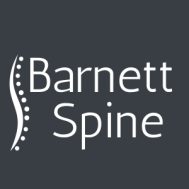Cervical Radiculopathy
Home | Spine Conditions | Radiculopathy Treatment In Dallas | Cervical Radiculopathy

Cervical radiculopathy occurs when a nerve root in the neck region becomes compressed or inflamed. Often referred to as a “pinched nerve,” this spine condition typically stems from a disc herniation and degenerative changes within the vertebrae and surrounding structures.
What is Cervical Radiculopathy?
Radiculopathy is defined as injury or damage to the nerve root where it exits the spine. In cervical radiculopathy, this condition affects the nerves within the vertebrae of the neck. It is typically marked by nerve compression, impingement, irritation, or prolonged traction that results in a lesion.
Patients in their 40s and 50s are more likely to develop cervical radiculopathy, as the discs in the spine succumb to normal age-related changes, such as:
- Bone spurs
- Spondylosis
- Arthritis
- Foraminal narrowing
- Disc protrusion
In younger patients, cervical radiculopathy is more often attributed to acute trauma, such as disc herniation in the cervical spine. Less common causes of cervical radiculopathy include tumors or non-cancerous growths in the spine, infections, and inflammatory diseases.
Understanding Cervical Radiculopathy Symptoms
The symptoms of cervical radiculopathy are usually experienced on one side of the body, but they can be bilateral. These are the most common signs of cervical radiculopathy:
- Neck pain
- Muscle weakness
- Lessened reflexes
- “Pins and needles” sensation
Depending on the location of the pinched nerve, these symptoms can radiate into the shoulders, arms, hands, upper chest, and back.
Patients with cervical radiculopathy often describe the pain as a “burning” sensation that worsens when moving or straining the neck. In severe cases, radiculopathy can diminish grip strength, the ability to lift objects, and other routine tasks.
Diagnostic Procedures
An accurate cervical radiculopathy diagnosis begins with a physical examination and thorough medical history. Dr. David Barnett will look at your mobility, reflexes, muscle strength, and signs of nerve impingement or irritation. Imaging tests with spine X-Rays, an MRI, or CT Scan will confirm if neurologic compression is present and help identify the causes and appropriate treatment.
Non-Surgical Treatment Options for Cervical Radiculopathy
Fortunately, this nerve irritation is often self-limiting and may resolve on its own or with conservative measures.
Non-surgical cervical radiculopathy treatment options include:
- Medications for pain relief and inflammation
- Cervical radiculopathy physical therapy
- Epidural steroid injections
- Lifestyle modifications
- Postural correction
- Cervical radiculopathy exercises such as chin tucks, shoulder holds, and side tilts
Surgical Treatment Options for Cervical Radiculopathy
In some cases, surgery may be necessary to relieve nerve compression pain and improve mobility. It is often indicated when conservative treatments fail to improve symptoms after three consecutive months or if muscle weakness and wasting continue to worsen.
Cervical radiculopathy surgery aims to relieve pressure on the affected nerve roots by creating more space in the spinal canal.
- Discectomy – a low-risk herniated disc surgery that removes boney structures and alleviates pressure on the nerves.
- Decompression – addresses arthritic changes, stenosis, and bone spurs that can compress spinal nerve roots in the cervical region.
Radiculopathy treatment with minimally invasive spine surgery allows for smaller surgical incisions, less blood loss, and a much faster recovery.
Expert Neurosurgery Practice for Cervical Radiculopathy
David W. Barnett, MD, is a board-certified neurosurgeon with over 28 years of experience treating complex spine conditions and disorders. Renowned for his patient-centered care and expertise in cervical radiculopathy management, he takes pride in helping his patients live healthy, happy lives.
To learn more about radiculopathy treatment with a leading spine specialist in Dallas, schedule your appointment with Dr. David Barnett today.
Conditions
Seeking a second opinion?
Dr. Barnett’s 30 years of experience lends to a level of advice and treatment that will bring an end to your back pain.
Learn More >
What Our Patients Have to Say
From start to finish, Dr. Barnett and his staff were always informative and professional. Dr. Barnett performed my neck surgery and lower back surgery all during a pandemic and everything worked out perfect. Highly recommend Dr. Barnett. Top notch.
-Healthgrades

